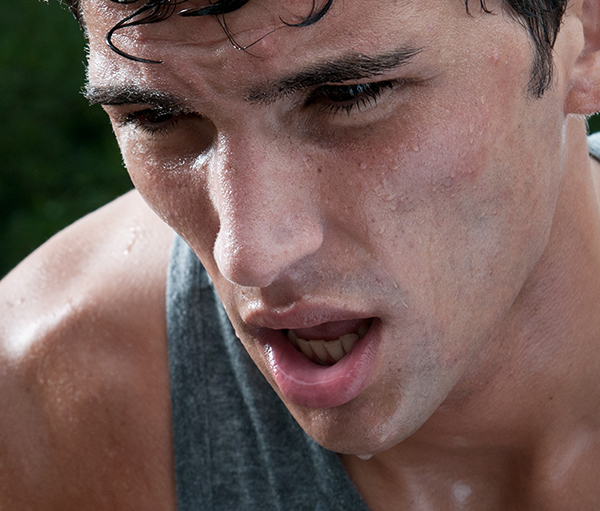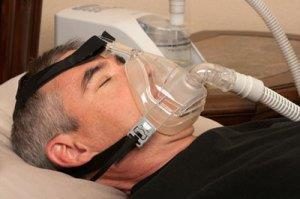
Stranger breathing?
Are you a fan of the Netflix Show “Stranger Things?”
If so, you may have noticed that Eleven (one of the main characters) has her own particular way of dismissing or insulting others: she refers to them as ”Mouth breathers.”
Have you ever wondered why she uses this term so disparagingly?
The term ‘Mouth-breather’, began its life as a non-insulting medical term and stayed that way for around seventy years, until the youth of America appropriated it for use as a generic insult in the 1980’s (when the show is set). It is used on ‘Stranger Things’ to denote a dumb person – and the contributors of Reddit and other platforms, have picked up on the insult. Some people have reacted quite strongly as they identify as breathing through their mouth and cannot see any wrong in it.
So, is mouth breathing OK?
No. Mouth breathing is not a good habit. In fact, it can have far reaching, permanent effects on facial shape, not to mention your general health. There are potentially serious health consequences associated with this abnormal breathing pattern.
Mouth-breathing occurs when we inhale and exhale through our mouth instead of our nose. While it is more common for people to mouth-breathe at night, for many it can occur during the day as well.
Common causes of mouth-breathing include allergies, anatomical abnormalities such as enlarged tonsils and adenoids or blockage of the sinuses or nose from polyps, a deviated septum or congestion from infection. If the mouth-breathing is at night, it is related to snoring and if left untreated, often develops into the condition Sleep Apnoea.
If mouth-breathing occurs as a result of being sick, such as the common cold, it may be a temporary thing. Temporary mouth-breathing such as this is common. However, if it becomes chronic, it can have long lasting negative effects.
When we breathe through our nose, air passes over the mucous membranes and into the sinuses. Nitric oxide, produced in the sinuses, acts as a potent germicide and it also helps the body’s smooth muscle (found in the heart and blood vessels) to function. Mouth-breathers may not be getting all the oxygen they need, which can lead to fatigue and, in some situations can cause stress to the heart and lungs, as well as raised blood pressure. This is because an optimal level of carbon dioxide (CO2) and oxygen in airways and blood is required for respiration. Mouth breathing leads to a depletion of CO2 and a condition known as hypocapnia. And hypocapnia can result in reduced cellular oxygen known as hypoxia.
When inhaling, nasal breathing protects the airways by humidifying, warming and cleaning the air entering the lungs. When exhaling, it retains both moisture and warmth.
Your body loves moist, filtered, warmed air. Mouth-breathing leads to the opposite – with a cascade of problems (including susceptibility to more coughs and colds, a cycle that can be hard to break without intervention).
In terms of dental health, breathing through the mouth dries the oral cavity and can lead to bad breath, gum disease and tooth decay. Many dentists are now working with Buteyko practitioners to overcome the symptoms of mouth breathing. This is because a closed mouth and high tongue posture are both essential in determining correct development of the jaw and alignment of the teeth. In this position the tongue acts like a natural retainer stimulating growth of the jaw and ensuring there is enough space for all erupting teeth.
Children who mouth breathe may develop physical deformities and have poor outcomes in terms of behaviour and health. They may develop a smaller chin, have slower growth and perform poorly at school due to fatigue and inattention. Many are misdiagnosed with ADD.
Children can develop a long face, dry lower lip, and a long nose. In addition, crowded teeth, a shorter upper lip, dull expression, speech issues, changes in posture, difficulties with sleep and large tonsils are common amongst children that mouth-breathe. Genetics plays a role in children’s growth, but it is important to realise that other things influence the way our genes are expressed.
The good news is that when identified, mouth-breathers can be trained to be nose breathers, whether adults or children. Sometimes just awareness is necessary to break the habit. But for clients who suffer from allergies, or who have enlarged tonsils, the Buteyko method can work to restore nasal breathing and relieve accompanying symptoms. When inhaling, nasal breathing protects the airways by humidifying, warming and cleaning the air entering the lungs. When exhaling, it retains both moisture and warmth.
The earlier in life a child can learn to breathe through their nose, the sooner there is a good foundation for facial growth, and ultimately, long term health. One of the commonest symptoms we see in clients attending our Buteyko courses is a partially or fully blocked nose.
This is one of the earliest symptoms to respond to the breathing exercises.
And for adults, the change to nose breathing will also dramatically improve their health. Buteyko breathing training normalises breathing through the nose. Over time, the technique becomes automatic and within a few weeks, the breathing exercises can be gradually phased out as the condition improves.
So ‘Stranger Things’ may have done us all a great service. By highlighting the term ‘Mouth Breather’ and focusing attention on our breathing we have an opportunity to correct this simple but essential habit which, not only has a profound influence on our health, wellbeing and longevity, but even our physical appearance.
_________________________________________________________________
This article contributed by Vivienne Smith Queenstown and Arrowtown, New Zealand
http://www.wellnessworksnz.com/






